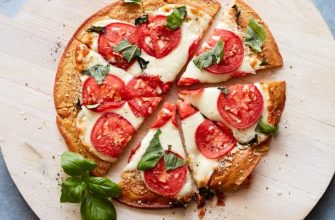1. Introduction: The World of Gluten-Free Foods
With the rising awareness of gluten sensitivities and celiac disease, the demand for gluten-free alternatives has skyrocketed. Fortunately, this doesn’t mean sacrificing our favorite dishes, like the ever-versatile tortilla. Join us as we dive deep into the art of crafting the perfect gluten-free tortilla.
2. Choosing the Right Gluten-Free Flour Blend
The key to a soft and pliable gluten-free tortilla lies in the flour.
- Almond Flour: This nutritious option provides a mildly sweet, nutty flavor. It’s rich in protein and perfect for those on keto diets.
- Coconut Flour: Light with a distinct coconut aroma, this flour suits those who love a slight sweetness in their tortillas.
- Tapioca Flour: This provides elasticity, aiding in a chewy texture similar to regular tortillas.
- Rice Flour: A common gluten-free alternative, it gives a neutral taste, mimicking the flavor of traditional tortillas.
Tip: Often, a blend of these flours yields the best results in both texture and taste.
3. Crafting the Perfect Dough
Ingredients:
- 1 cup chosen gluten-free flour blend
- 2/3 cup water (adjust based on flour type)
- 1/2 tsp. xanthan gum (if not in your flour blend)
- A pinch of salt
Steps:
- Mixing: Combine your chosen flour blend, salt, and xanthan gum in a bowl. Gradually add water while mixing to form a dough.
- Kneading: Transfer the dough to a floured surface. Knead for a couple of minutes until it’s smooth.
- Resting: Let the dough rest for 15 minutes. This allows the moisture to distribute evenly.
- Rolling: Divide the dough into small balls and roll them into flat, round tortillas using a rolling pin.
4. Cooking Your Gluten-Free Tortillas
- Heat a Pan: Preheat a non-stick skillet or griddle over medium-high heat.
- Cook: Place a tortilla onto the pan. Cook for 1-2 minutes on each side or until small bubbles form and the edges lift.
- Store: If you’re making them in bulk, let them cool completely before storing in an airtight container. They’ll keep for up to a week.
5. Troubleshooting Common Issues
Every chef, amateur or professional, faces the occasional culinary hiccup. When it comes to gluten-free tortillas, here are some common challenges and their solutions.
- Issue: Tortillas breaking apart
Solution: This is often due to not enough binding agents. Ensure you’ve added xanthan gum if it isn’t in your flour blend already. A little more water can also help. - Issue: Too thick or dense
Solution: These tortillas need a gentle touch. Roll them thinner, and be sure not to over-knead the dough, which can make it dense. - Issue: Bland taste
Solution: Feel free to experiment! Add herbs, spices, or even a dash of garlic powder to infuse more flavor.
6. Variations to Try
Taking the basic gluten-free tortilla recipe, you can introduce a variety of flavors to keep things exciting.
- Herb-infused Tortillas: Mix in finely chopped herbs like cilantro, parsley, or rosemary to the dough for a fragrant twist.
- Spicy Kick Tortillas: Add a pinch of cayenne pepper or finely minced jalapeños for tortillas with a zing.
- “Cheesy” Vegan Tortillas: Incorporate nutritional yeast into the dough. It gives a cheese-like flavor without any dairy.
7. Serving Suggestions
Once you’ve mastered the art of the gluten-free tortilla, the possibilities are endless. Here are some serving ideas:
- Tacos: Fill them with grilled veggies, seasoned beans, guacamole, and salsa for a delightful meal.
- Wraps: Layer with hummus, roasted red pepper, lettuce, and grilled chicken for a hearty lunch.
- Dessert Crepes: A thinner version of the tortilla can be filled with almond butter, bananas, and a drizzle of honey for a sweet treat.
Conclusion: The World of Culinary Innovation
Stepping into gluten-free cooking, especially staples like tortillas, can be intimidating. Yet, with the right techniques, ingredients, and a sprinkle of patience, the results can be deeply rewarding. Not just a dietary need, it’s a doorway to innovative and delicious meals. So, with your newfound knowledge, savor the joy of cooking and feasting!


